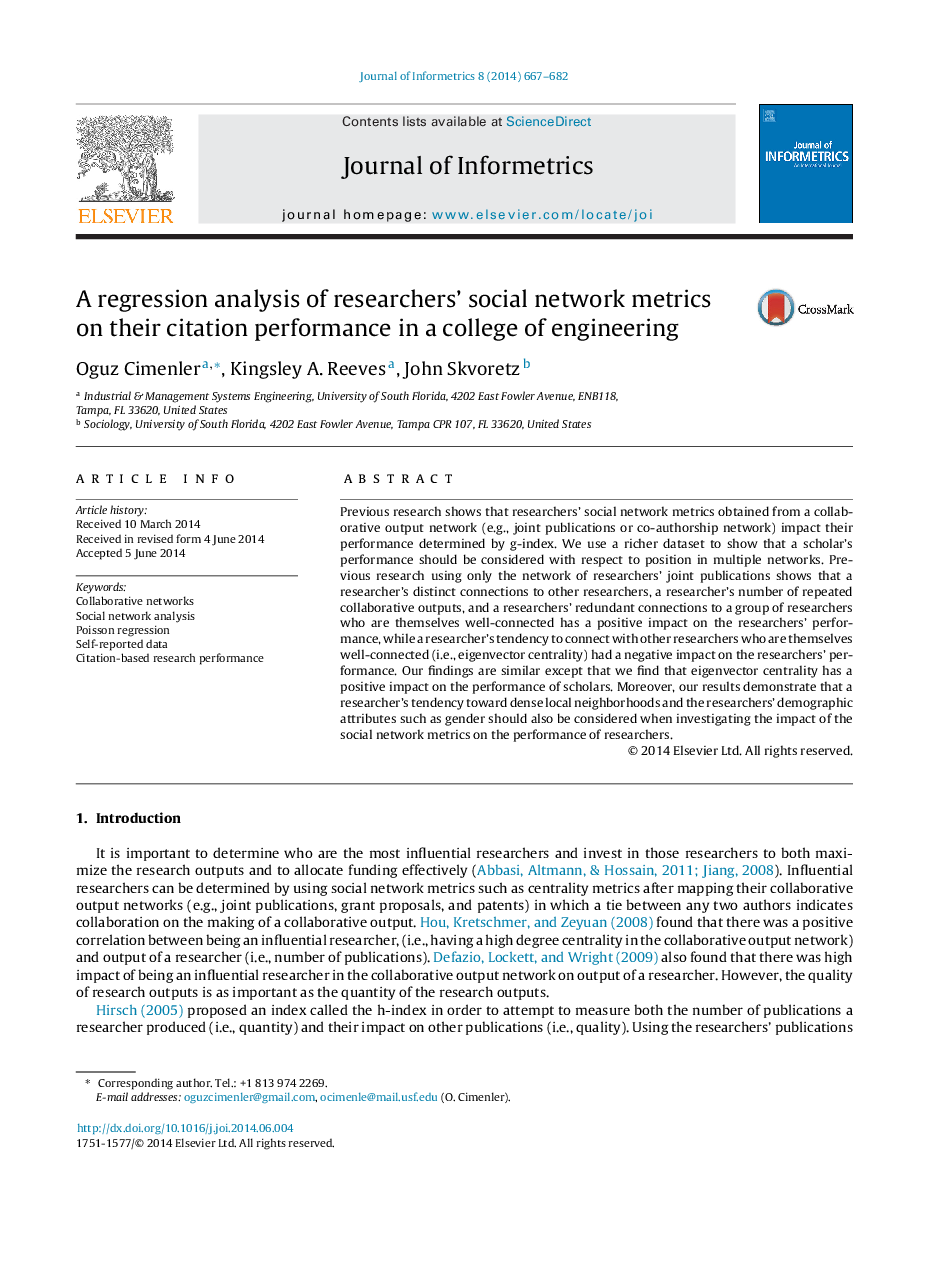| Article ID | Journal | Published Year | Pages | File Type |
|---|---|---|---|---|
| 10358372 | Journal of Informetrics | 2014 | 16 Pages |
Abstract
Previous research shows that researchers' social network metrics obtained from a collaborative output network (e.g., joint publications or co-authorship network) impact their performance determined by g-index. We use a richer dataset to show that a scholar's performance should be considered with respect to position in multiple networks. Previous research using only the network of researchers' joint publications shows that a researcher's distinct connections to other researchers, a researcher's number of repeated collaborative outputs, and a researchers' redundant connections to a group of researchers who are themselves well-connected has a positive impact on the researchers' performance, while a researcher's tendency to connect with other researchers who are themselves well-connected (i.e., eigenvector centrality) had a negative impact on the researchers' performance. Our findings are similar except that we find that eigenvector centrality has a positive impact on the performance of scholars. Moreover, our results demonstrate that a researcher's tendency toward dense local neighborhoods and the researchers' demographic attributes such as gender should also be considered when investigating the impact of the social network metrics on the performance of researchers.
Related Topics
Physical Sciences and Engineering
Computer Science
Computer Science Applications
Authors
Oguz Cimenler, Kingsley A. Reeves, John Skvoretz,
